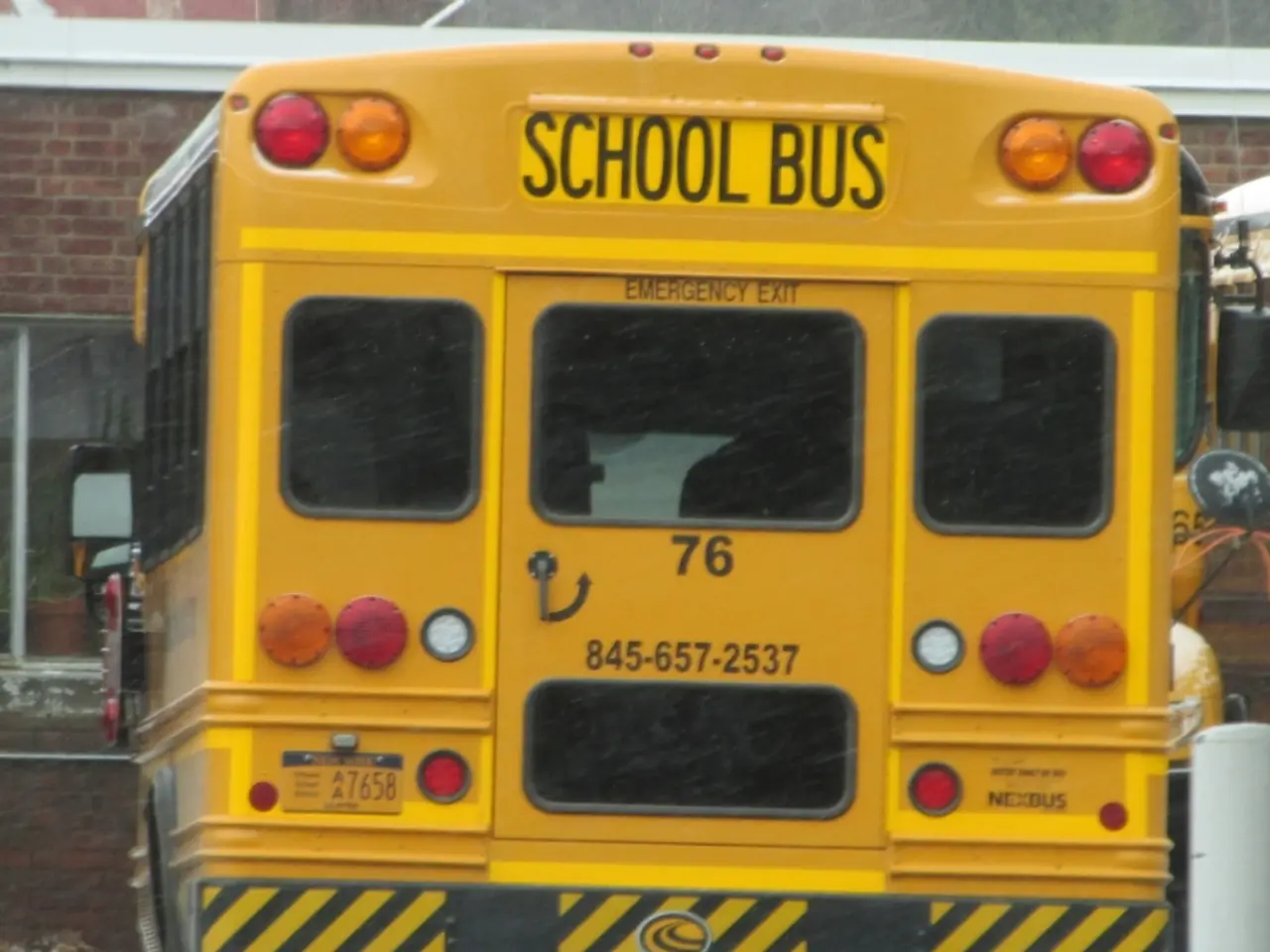Long school commute for 7th graders is a common occurrence in Berlin - Education in Berlin often continues from the seventh grade onwards
## School Changes and Commutes in Berlin: Navigating the Transition to 7th Grade
As the school year approaches, families in Berlin are preparing for the transition to 7th grade, a significant milestone that often comes with changes in schools and commutes. With many schools in the city oversubscribed, finding the right school can be a challenge.
In districts like Pankow, where many schools are oversubscribed, some children may have to attend a school further away due to a lack of places. This is particularly true for popular schools, where admission is often based on a lottery system, especially when the average grade is lower than the school's average.
The question of which schools are oversubscribed is important, and information events are suggested for finding out. Norman Heise, chairman of the state parents' committee, recommends paying attention to such events, and if a child is forced to attend a school far from home, he suggests filing an objection.
However, the cost of such lawsuits can range into thousands of euros, and lawyers suggest that in some cases, filing a lawsuit may be an option, with a 50-50 chance of success. It's important to note that the maximum acceptable school commute time in Berlin, according to the state parents' committee, is 45 minutes.
The average grade required for admission to popular schools in Berlin varies. For universities like Humboldt University of Berlin and Freie Universität Berlin, applicants typically need a strong academic background. Humboldt University of Berlin, for example, has a competitive acceptance rate of 15%, indicating that only applicants with an exceptional academic record are considered. Freie Universität Berlin, on the other hand, recommends a GPA of 2.5 or better for admission.
Berlin Cosmopolitan School, which offers bilingual education, does not specifically mention a GPA requirement, focusing instead on providing individual support and a recognized German Abitur or Bilingual Abitur that enables students to study at both German and international universities.
The location of the school can significantly influence commuting times and methods. Schools located in central areas of Berlin, such as Humboldt University, might have easier access to public transportation, making commutes shorter and more efficient. Conversely, schools in outer districts might require longer commutes. The choice of school based on academic requirements often involves considering transportation options and distances to minimize travel time.
Integrated secondary schools are expected to have more available places due to no students switching from gymnasiums. However, Heise expects many students will not get into their preferred school next year, especially at integrated secondary schools. Despite these challenges, problems with school changes, such as long commutes, are expected to persist in Berlin.
[1] Humboldt University of Berlin: https://www.hu-berlin.de/admission/en/ [2] Freie Universität Berlin: https://www.fu-berlin.de/studium/admission/en/ [3] Berlin Cosmopolitan School: https://www.berlin-cosmopolitan.de/en/home/
- In the midst of school transitions, families in Berlin should be mindful of the city's employment policy, as it may impact their child's commute to school. The state parents' committee advises that the maximum acceptable school commute time in Berlin is 45 minutes, which aligns with some employment policies regarding work commute times.
- As students in Berlin navigate the competitive school system, they must also consider their lifestyle and education-and-self-development. For instance, University ABCD may require a higher GPA for admission, affecting a student's ability to juggle schoolwork, extracurricular activities, and general news responsibilities, thus influencing their lifestyle choices.




